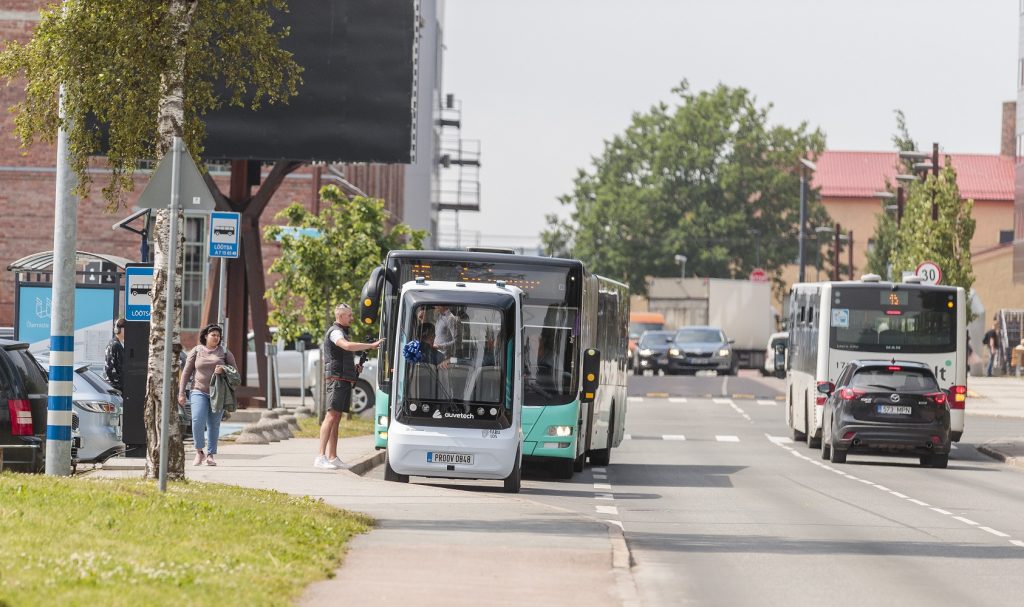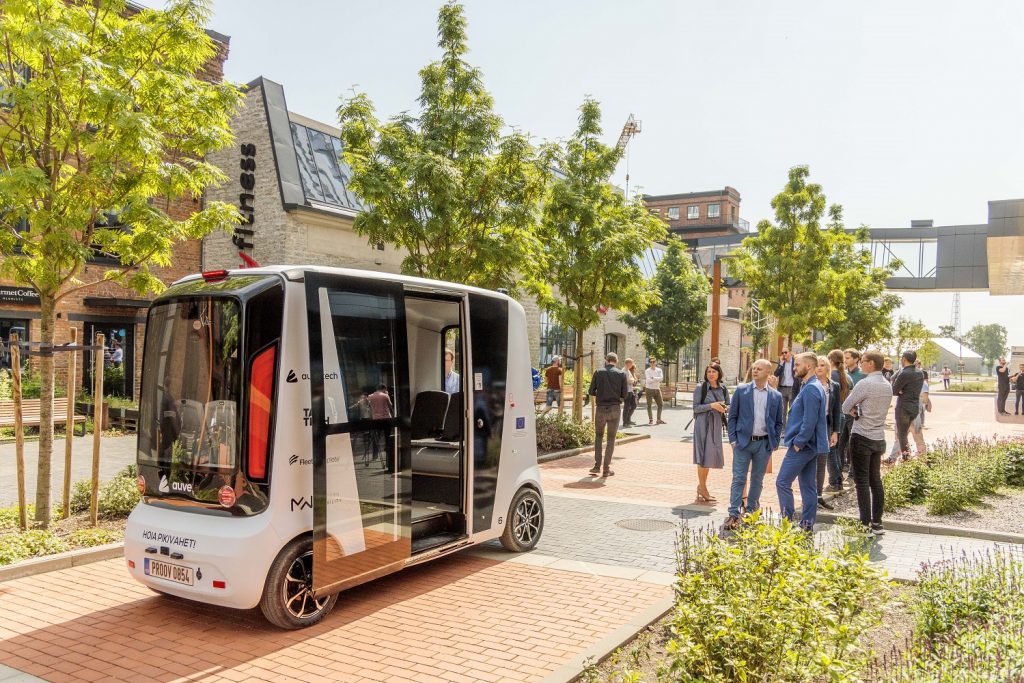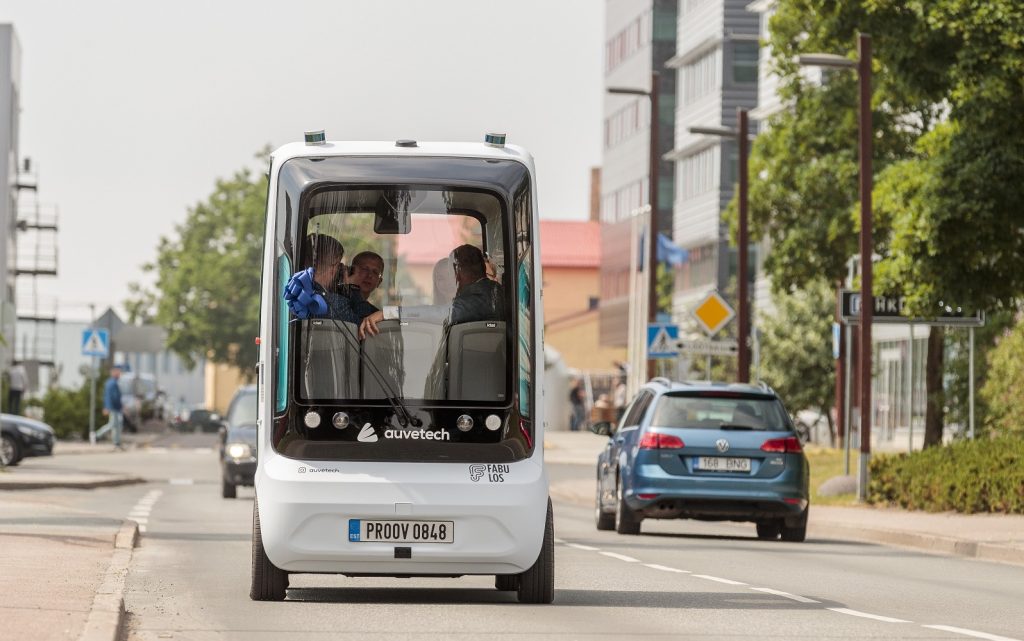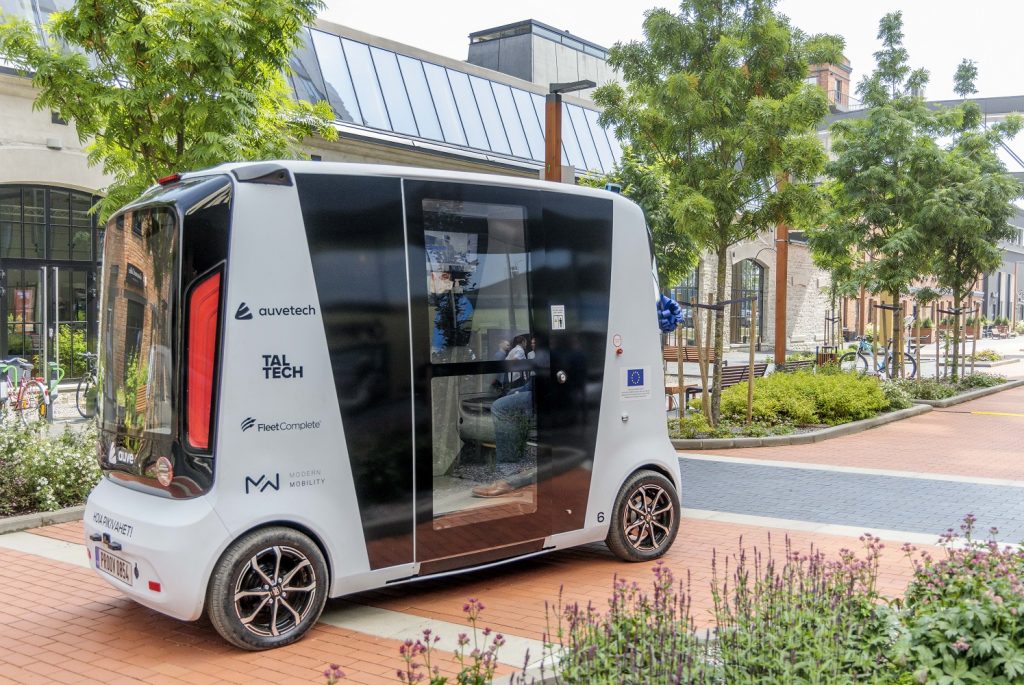On 18 June, an Estonian-developed self-driving bus with an integrated infrastructure started serving passengers in a test run at Ülemiste City, a business park in Tallinn, Estonia.
The bus network in the campus will be supplemented with two further buses to test a public transportation platform based on three self-driving buses.
In addition to self-driving buses, the smart public transportation system includes smart bus stops and a software platform that facilitates communication between all parts of the system and, prospectively, with regular public transportation systems. The goal of the tests is to collect real-life experience and continue to develop the buses as a natural extension of public transport.

A human expert onboard for safety
“The buses in the campus will be put through various trials in the test period. The buses will have to adapt to human-controlled traffic, and they will have to maintain contact with the control centre and follow the instructions received,” the business park said in a statement, adding that it will be safe for pedestrians and human-powered vehicle users to move near the self-driving buses. “For additional traffic safety, a vehicle expert is always on the bus during the test period.”

Project innovation, the development and testing are led by Tallinn University of Technology (TalTech).
The Estonian pilot has received funding for its R&D work from the FABULOS project (Future Automated Bus Urban Level Operation Systems) that aims to prepare cities for adoption of innovative technologies and solutions in transportation. The FABULOS project is funded by European Union and coordinated by Forum Virium Helsinki.

The project is implemented by the Mobile Civitatem Consortium comprising Modern Mobility, TalTech, Auve Tech and Fleet Complete.
Cover: The Ülemiste City is testing a public transit platform based on self-driving buses. Photo by Karli Saul.

